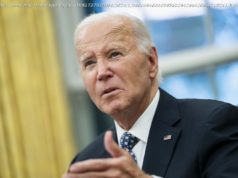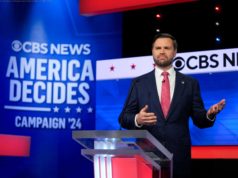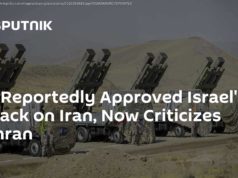Having two presidents sounds like a terrible sitcom idea. In reality, the situation is just plain terrible.
As Doug Mataconis noted earlier this week, Venezuela is currently in a high state of crisis. Like some kind of bad sitcom, it currently has two presidents. One is the inheritor of Hugo Chávez’s Bolivarian Revolution, Nicolás Maduro, who was sworn in for a second term as president earlier this month; the other is Juan Guaidó, who claims that the Maduro election was fraudulent, and therefore in his role as president of the National Assembly it was his constitutional duty to assume the presidency.
Guaidó’s claims are based on Article 233 of the Venezuelan constitution:
Article 233: The President of the Republic shall become permanently unavailable to serve by reason of any of the following events: death; resignation; removal from office by decision of the Supreme Tribunal of Justice; permanent physical or mental disability certified by a medical board designated by the Supreme Tribunal of Justice with the approval of the National Assembly; abandonment of his position, duly declared by the National Assembly; and recall by popular vote.
When an elected President becomes permanently unavailable to serve prior to his inauguration, a new election by universal suffrage and direct ballot shall be held within 30 consecutive days. Pending election and inauguration of the new President, the President of the National Assembly shall take charge of the Presidency of the Republic.
The problem for this claim, of course, is that while Guaidó and his supporters may believe that Maduro’s re-election was illegitimate, this claim is contested, to say the least. He has the backing of the National Assembly, but it is worth noting that Maduro has already been ignoring that body already.
The Economist provides some context:
Mr Guaidó’s rise to prominence has been spectacular. On January 5th he was chosen as head of Venezuela’s national assembly as part of a power-sharing agreement between the main opposition parties. He seemed almost the accidental president, selected largely owing to the lack of other options. Of the two more obvious candidates in his party, Voluntad Popular, one is under house arrest and the other has taken refuge in the Chilean embassy. The assembly has been defunct since 2016. After the opposition won a majority in the chamber in the previous year Mr Maduro neutered it, replacing it with a pseudo-parliament that obeys his orders.
Overall, his position is not especially strong. Indeed, Guaidó’s main tool at the moment is recognition of his government by the US, Canada, and a number of Latin American states.






